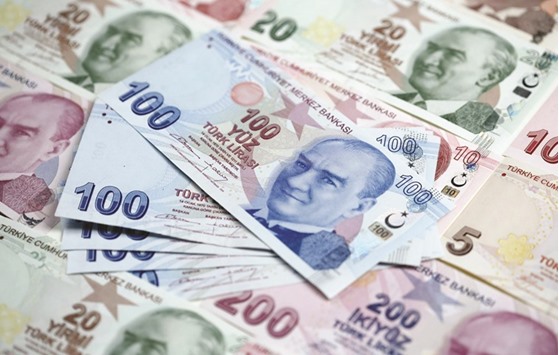Turkey’s central bank kept interest rates on hold yesterday, citing weakness in the lira currency, pausing after seven straight months of cuts and repeated calls by President Tayyip Erdogan for cheaper credit.
The lira plumbed new record lows against the US dollar last week and this, after the government signalled it would revive plans to push through an executive presidency, renewing investor concern about Erdogan’s drive to expand his power.
“The decision to halt the easing cycle was clearly motivated by the weaker lira,” said William Jackson of Capital Economics in e-mailed comments, adding the bank’s monetary policy committee had “not closed the door on future easing”.
It kept the overnight lending rate, the highest of the multiple rates it uses to set policy, at 8.25%.
Fourteen out of 15 economists polled by Reuters had expected the bank to cut rates, with most seeing a 25 basis point cut.
“Recent developments in exchange rates and other cost factors restrain the improvement in the inflation outlook and thus necessitate the maintenance of a cautious monetary policy stance,” the bank said in a statement announcing the decision, where it also kept its benchmark one-week repo rate on hold.
There had been some speculation in the market that the bank could put its easing on hold after an adviser to Erdogan said on Wednesday that it would stop cutting rates if it needed to, comments that strengthened the currency somewhat. Inflation, at 7.28%, remains above the government’s target of 5%.
The pause comes after the government this month cut its economic growth outlook and raised its inflation and unemployment forecasts.
Hours before the announcement, Erdogan – who favours low interest rates to spur spending and bolster the economy – declared himself an “enemy” of interest rates. “I’m not fond of interest rates. I am an enemy of interest rates as I see them as a means of exploitation,” he told a meeting at his palace in Ankara, comments that were broadcast live on television.
Last month, ratings agency Moody’s lowered its rating on Turkey’s sovereign debt to “junk” status, citing worries about the rule of law after an attempted coup and the risks from a slowing economy.
Still, the bank could continue to cut rates if the lira recovers, said Ibrahim Aksoy of HSBC Asset Management. “We think that the bank will be monitoring global liquidity conditions and the trend in the lira for another cut in the overnight lending rate,” he said.” Another 25 basis points rate cut is possible in November if the trend in the lira allows it.”
Following the decision, the lira strengthened as far as 3.0517 to the dollar from 3.0710 beforehand.
By 1125 GMT, it had slipped back to 3.0635.

The lira plumbed new record lows against the US dollar last week
